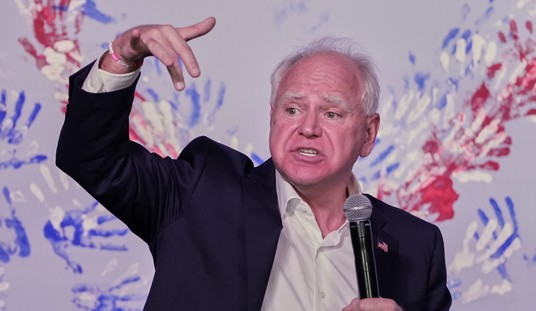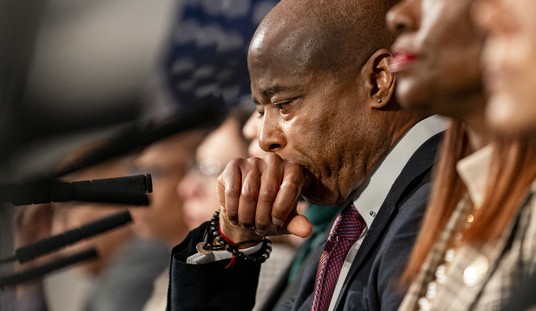After Moqtada al-Sadr’s capitulation of Sadr City this weekend, I predicted that the mainstream media would follow the Basra Narrative and declare Sadr the winner after his surrender. Little did I know that Time Magazine would prove me right within hours of the post. Laughingly headlined “Al-Sadr Wins Another Round”, Mark Kukis explains how Sadr won by giving up his last power base in Iraq:
The fact that a leading figure in al-Sadr’s ranks announced the deal and pointedly rejected the Iraqi government’s key demand to disarm suggests that the cleric is still controlling the agenda tactically and politically despite the most serious challenge his power the Iraqi government could muster. Iraqi Prime Minister Nouri al-Maliki set out to break the back of the Mahdi Army in March, when he launched an offensive against areas the militia controls in the southern city of Basra. The Mahdi Army fought Iraqi forces to a standstill there while unleashing a daily hail of rockets and mortars on the Green Zone that left al-Maliki’s government effectively the ones under siege. And when U.S. and Iraqi troops tried to press into Sadr City to chase the militia’s mortar men and rocketeers, they barely managed to establish a foothold on the southern edge of the neighborhood before the situation stalemated.
How long this new cease-fire will last is uncertain. Al-Sadr declared a cease-fire unilaterally last year only to see al-Maliki ignore it with the initial strike in Basra. But one thing is clear: the latest pause in the running fight between al-Sadr and the U.S.-backed Iraqi government offers no visible solutions to the problems at the root of the conflict. Al-Maliki wants to disband the Mahdi Army, or at least de-fang it, before provincial elections in the fall. The bloody nose the Mahdi Army gave al-Maliki in the latest crisis shows how unlikely that is. Above all, al-Sadr still wants the Americans to go. But the inability of Iraqi forces to operate independently during the recent fighting shows how unlikely that is – unless a new White House decides to reduce military support for an Iraqi government still unable to face down its toughest foe.
Another round? Kukis still thinks that Sadr prevailed in Basra by not losing in the first 48 hours. Even the New York Times acknowledged Maliki’s victory in Basra, noting that the residents now enjoy a relatively normal and liberated life in the city on which Sadr imposed a Taliban-like code. The Mahdis have disappeared from the south, and Maliki’s forces control Basra after several years of Sadr’s grip on the area. How exactly did Sadr win that round?
And in Sadr City, Kukis gives us the same Basra Narrative provided by the entirety of the American media at the end of March. Sadr’s forces announced the cease-fire, so they must be winning. Not exactly; that same agreement ceded control of Sadr City to government forces, and it specifically acknowledged that Maliki had the right to continue offensive operations against anyone refusing to surrender medium or heavy arms. In fact, just as in Basra after the agreement there, Maliki continues to pursue Mahdi elements militarily.
This time, most of the American media has wisely refrained from cheering on Sadr and reporting the operation as a massive defeat while Maliki beats Sadr. Kukis and Time should have done the same.








Join the conversation as a VIP Member